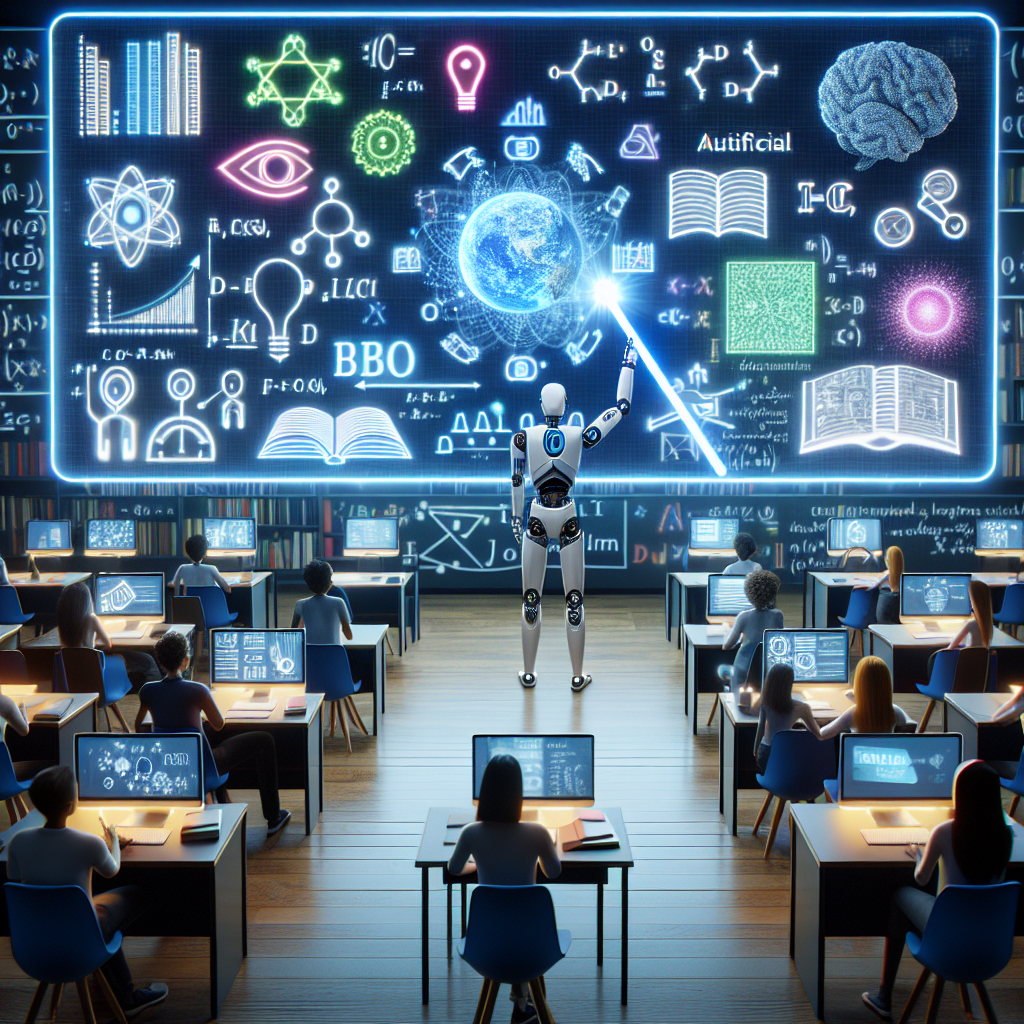In recent years, the field of education has seen a significant shift towards personalized learning. This approach to education recognizes that each student has unique learning needs and preferences, and seeks to tailor instruction to meet those individual needs. Personalized learning has been shown to improve student engagement, motivation, and academic achievement.
One of the key technologies driving the personalized learning revolution is artificial intelligence (AI). AI platforms can analyze vast amounts of data to identify patterns in student learning and provide personalized recommendations for instruction. By leveraging AI platforms, educators can gain valuable insights into student progress and make informed decisions about how to support each student’s learning journey.
There are a variety of AI platforms available for personalized learning, each offering different features and capabilities. Some platforms focus on adaptive learning, where content is dynamically adjusted based on student performance. Others use machine learning algorithms to analyze student data and provide personalized recommendations for instruction. Regardless of the specific features, AI platforms can help educators deliver more effective and engaging instruction to their students.
One of the key benefits of leveraging AI platforms for personalized learning is the ability to provide immediate feedback to students. Traditional methods of assessment often require students to wait days or even weeks for feedback on their performance. AI platforms can provide instant feedback on assignments, quizzes, and assessments, allowing students to quickly identify areas where they need to improve and take corrective action.
Another benefit of AI platforms for personalized learning is the ability to track student progress over time. By analyzing data on student performance, educators can identify trends and patterns in student learning and make data-driven decisions about how to support each student’s individual needs. This can help educators identify struggling students early on and provide targeted interventions to help them succeed.
AI platforms can also help educators differentiate instruction for students with diverse learning needs. By analyzing data on student performance and preferences, AI platforms can recommend personalized learning resources and activities that are tailored to each student’s individual needs. This can help educators provide more effective instruction to students with diverse learning styles and abilities.
In addition to supporting personalized learning for individual students, AI platforms can also help educators design personalized learning experiences for entire classrooms. By analyzing data on student performance and preferences, AI platforms can recommend instructional strategies and resources that are tailored to the needs of the entire class. This can help educators design more engaging and effective lessons that meet the diverse needs of all students in the classroom.
Despite the many benefits of leveraging AI platforms for personalized learning, there are also some challenges and considerations to keep in mind. One key challenge is the need for educators to have the necessary training and support to effectively use AI platforms in the classroom. Educators may need to learn how to interpret data from AI platforms, make informed decisions about instruction, and integrate personalized learning strategies into their teaching practice.
Another challenge is the potential for AI platforms to reinforce existing biases and inequalities in education. AI algorithms are only as good as the data they are trained on, and if the data contains biases or inaccuracies, the AI platform may produce biased or inaccurate recommendations. Educators must be vigilant in monitoring and addressing biases in AI platforms to ensure that all students have equal access to personalized learning opportunities.
Despite these challenges, the potential of AI platforms for personalized learning is vast. By leveraging AI technology, educators can gain valuable insights into student learning and provide more effective and engaging instruction to support each student’s individual needs. As personalized learning continues to gain momentum in education, AI platforms will play an increasingly important role in helping educators deliver high-quality instruction to all students.
FAQs:
Q: What is personalized learning?
A: Personalized learning is an approach to education that recognizes that each student has unique learning needs and preferences, and seeks to tailor instruction to meet those individual needs.
Q: How can AI platforms support personalized learning?
A: AI platforms can analyze data on student performance and preferences to provide personalized recommendations for instruction, track student progress over time, differentiate instruction for students with diverse learning needs, and design personalized learning experiences for entire classrooms.
Q: What are some of the challenges of leveraging AI platforms for personalized learning?
A: Some key challenges include the need for educators to have the necessary training and support to effectively use AI platforms, and the potential for AI platforms to reinforce existing biases and inequalities in education.
Q: How can educators address biases in AI platforms?
A: Educators can address biases in AI platforms by monitoring and analyzing the data that the AI platform is trained on, and making adjustments to the platform as needed to ensure that all students have equal access to personalized learning opportunities.

